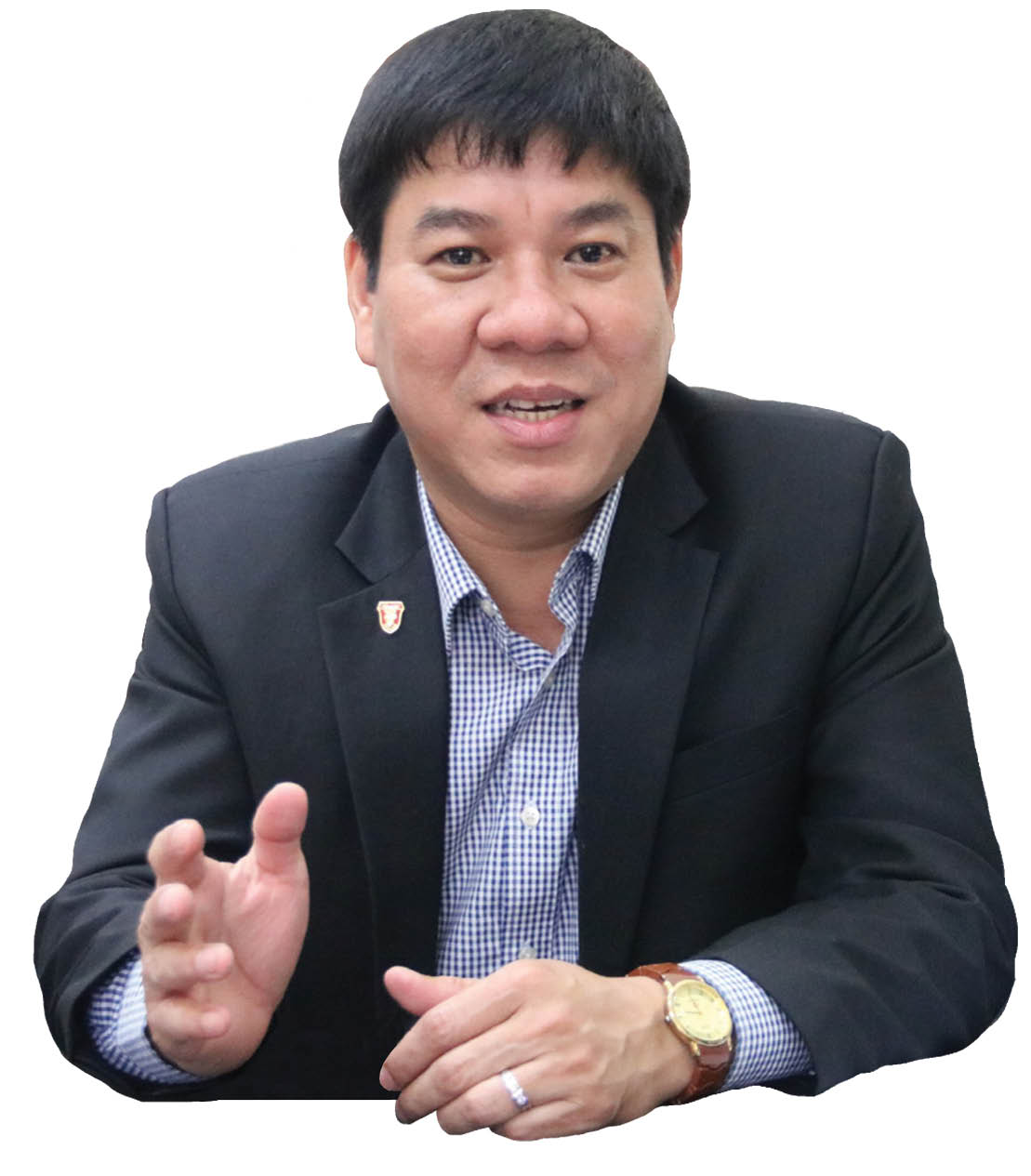
Assoc. Prof, Dr. Huynh Van Chuong, Vice President of Hue University
According to Assoc. Prof, Dr. Huynh Van Chuong, career training depends on social needs and labor market. Changes are aligned with restructuring the training programs, which will later be reported to the Ministry of Education and Training.
Is there anything new in the admission programs, sir?
Hue University’s intake for this year is planned at 13,150 for 136 majors, with 12 newly-open fields and other 7 to be launched at the University of Education, Hue University. 8 majors with low enrolment for three consecutive years have temporarily been discontinued. The total number of intakes for newly-open majors is expected at approximately 800, each of which trains about 50 students during the first year to ensure quality and to grasp the overall situation.
Newly-opened majors, especially at the University of Science, University of Agriculture and Forestry, and Hue University - Quang Tri Branch, target engineering and application to ensure that graduates can easily approach enterprises. Other majors focus on pedagogical sector to correspond to the new general teacher training program, especially the interdisciplinary training program within the pilot plan of MOET in geography-history, music education, civic education, legal education, and other technical-related fields in pedagogy.
Hue University directly manages internationally-granted bachelor’s degrees through the International School (whose predecessor was the International Training Center), among which Information Security and Business Administration are the two new majors. Previously, to complete international programs, students had to study in Hanoi or Ho Chi Minh city, but since Hue University now offers these courses, students can save time and money. The qualifications are granted by globally recognized and highly ranked universities in Finland and Thailand.
Hue University also develops specific training programs. For this year, these include Tourism and Software Engineering, with at least 40% of time for firm-based training.
The large number of training courses can be both favorable and disadvantageous; what’s your viewpoint on this issue?

Students are reading the leaflets and exchanging information on Hue University admission in 2019
All universities throughout the nation now maintains 200 training programs, and Hue University offers 136. Data on investigating planning strategies for university networks indicates that Hue University provides a full range of key training fields, from economics to arts and humanities, agriculture-forestry-fishery, medicine, and physical education, with the exception of specific fields in police and military training.
Multi-discipline is an advantage as students can choose among the diverse offered programs. Students can pursue double majors, such as Foreign language and Law, Law and Agri-Forestry, Agri-Forestry and Economics… Graduate’s quality standards will be raised as a result of double majoring. Besides, sharing facilities among universities can also be more convenient.
However, limitations exist in multi-disciplinary universities as in-depth training is restricted. The coping strategy of Hue University is that each university member chooses from two to three programs to develop in depth to create university brand identity. These “branded” programs should be in high demand, able to maintain international partnerships with businesses and other international institutions, and led by key experts in the field to ensure an international quality standard that may attract international students to come and study in a bilingual learning environment.
Branded programs should live up to their names. For example, the University of Agriculture and Forestry should maintain popular training programs that students should think about studying Agriculture and Forestry in Hue University but not elsewhere. Likewise, Law fields are now exclusively offered in Hue throughout the central region, but the question is how to discourage students from choosing to pursue such programs in Hanoi or Ho Chi Minh city.
Despite high training quality in current programs, the branded fields seem less noticeable in comparison with similar programs nationwide. Only medicine and pharmacy training programs in Hue University take the lead throughout Central and Western Highland regions.
How should training programs be developed in both depth and brand identity, sir?
Hue University offers only 136 programs but spreads these across our 12 educational institutions, which means the ratio of discipline to training units is not high. Some colleges and universities in Vietnam offer up to 30 programs, and by comparison, the number of offered courses in Hue University members is adequately maintained and quality ensured.
Currently, Hue University is providing advanced study programs, but the concern involves building branding on a large scale. We care about quality assurance to ensure proper standards for both learners and recruiting agencies. In 2019, about 20-25 training programs are planned to undergo quality assurance procedure.
The new programs involve engineering, specific-field training, on-demand pedagogical sector, and other fields related to the revolutionary 4.0 technology. These programs respond to the high demands in the province and Central region. This is the basis to build and promote branded sectors to satisfy society’s requirements.
Does the branding promotion of certain fields affect other academic sectors?
In fact, all sectors are in stable development, but institutions need some flagship areas; like among a thousand students, there should be some outstanding ones who would define and develop the university’s brand identity.
Reform is crucial in education. The changes in Hue University are in fact, to adapt well to the world’s situation. Basic research is still maintained, yet applied research should also be fostered for students to accommodate well to the 4.0 technology era as soon as they graduate.
Such major changes in the training programs seem to have been carefully planned. Can we expect to see a stability in the provided training sectors?
Education and training these days are changing every single hour, so it’s hard to say, as they both depend on the 4.0 technology and career prospects of the society.
Training must change in consistence with the world’s trends. Yet our priority is to preserve Vietnam's cultural tradition and its distinctive educational characteristics in a way that technology can run parallel to humanity, culture, and national traditions. Hue University will certainly seek out to maintain the stability of training sectors. Changes, if any, must respond well to the social development.
Thank you very much, sir!
Story and photos: Huu Phuc